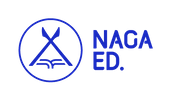LEAP Kiphire: Programme Design
Category: Project Report
Topic: LEAP Kiphire: Programme Design
Name of Report:Thematic Note 2023-2026
Date of Publication: 19/08/2024
The Learning Enhancement and Accessibility Project (LEAP) is a flagship three-year initiative (2023–2026) by NagaEd in collaboration with the Kiphire District Administration and supported by the NITI Aayog’s Aspirational Districts Programme. Designed for the frontier district of Kiphire, Nagaland, LEAP empowers teachers, students, and communities by bridging the digital divide and fostering a culture of learning through high-quality digital content and inclusive, phased implementation.
Community-Driven Design: LEAP’s foundation is the Listening Mission — an in-depth needs assessment involving local voices, ensuring interventions reflect real challenges.
Bridging the Digital Divide: Offline and online access models, 5G routers, and LMS tools ensure equitable content delivery even in remote schools.
High-Quality, Modular Content: Digital courseware for Classes 9 & 10 (Maths & Science) is built with prerequisites, scaffolding, assessments, and interactive features.
Teacher Training & Support: Hands-on training, workshops, and access to NagaEd experts equip educators to confidently use digital tools.
Student-Centric Learning: Digital workshops, LMS orientation, and gamified content spark curiosity and improve learning outcomes.
On-Ground Technical Support: A dedicated coordinator, ticketing system, and regular check-ins ensure real-time problem-solving and progress tracking.
Listening Mission & Needs Assessment
Field visits, surveys, and interviews identified challenges like internet access, student readiness, and digital skills gaps.
Programme & Content Design
LEAP introduced a modular curriculum design using six core components — from prerequisites and interactive learning to assessments and real-world applications.
Blended Learning Rollout
Course delivery used a hybrid model combining digital modules with in-person teaching to ensure flexibility and personalisation.
Teacher Training & Incentives
Training included LMS use, digital course delivery, and computer basics. Teachers received recognition awards and professional development opportunities.
Infrastructure Deployment
All 15 schools received 5G routers, devices, and access to LMS — addressing connectivity issues and enabling offline learning.
Student Orientation & Workshops
Workshops helped students navigate digital tools and understand how to learn via the LMS, especially in Maths and Science.
Monitoring & Evaluation
Quarterly reports, feedback loops, and school-level check-ins ensured accountability and iterative improvement throughout implementation.
Re-orientation for New Teachers & Students
Refinements to Content & Delivery Based on Feedback
Continued Training & Professional Development
Quarterly & Annual Monitoring with Community Check-ins
Stronger Stakeholder Engagement Across All 15 Schools
